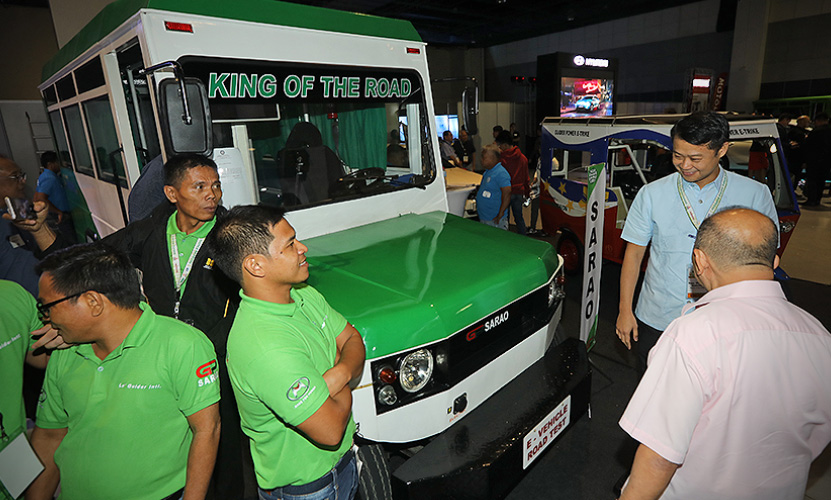
Senator Win Gatchalian is pushing for a comprehensive framework for electric vehicles (EVs) to ensure the sustainability of the industry in the country as the Senate Committee on Energy began ironing out the details on how to address the challenges in the industry’s development.
During the first hearing of Senate Bill No.174, or the Electric Vehicles and Charging Stations Act, Gatchalian, reiterated the importance of a sound policy and regulatory framework to usher in the uptake of EVs in the country.
The lawmaker, who chairs the Senate Committee on Energy, pointed out the Philippines needs to have a sustainable EV ecosystem in the Philippines by 2024. By then, the price of traditional internal combustion engine (ICE) vehicles would be the same as EVs, he explained.
“We have to ensure that the industry is alive and vibrant, so that when 2024 comes in, it will be easier for our consumers to adopt and switch to e-vehicles,” Gatchalian said. “That’s precisely what we want, to have faster adoption of e-vehicles so that we’ll have cleaner environment; we can help reduce importation of oil, which is about 90 percent of imported fuel; and achieve energy security, hopefully in the near future.”
“We need to put everything in place now, so that when 2024 comes, we have the necessary laws, the necessary framework, and the infrastructure in place so that our consumers will have easier time to adapt and switch to e-vehicles,” he added.
To sustain the EV ecosystem in the Philippines, Gatchalian stressed the need to go beyond the promotion of EVs and charging stations. He urged the government to take into consideration the other side of the EV industry, which includes manufacturing of EVs, charging stations, and batteries; research and development; and skills training of people and employees.
Gatchalian also raised the possibility of granting fiscal incentives in the short term, including exempting EVs from Value Added Tax, in order to further develop the e-vehicle industry and help them compete “head-to-head” with ICE vehicles.
“The principle behind giving incentives is also to develop the industry as a whole. But in the short term, the industry is asking for fiscal incentives to allow them to import EVs and compete head-to-head with traditional ICE vehicles, because ICE vehicles are cheaper right now,” the lawmaker explained.
“Before we reach parity in 2024, allow them to compete by getting as much as incentives as possible in importing EVs,” he added.
Gatchalian’s SBN 174 seeks to address the challenges to the development of the
e-vehicle industry by mandating the Department of Energy to create an Electric Vehicle Roadmap and for distribution utilities to incorporate a charging infrastructure in their power development plan.
Moreover, the measure seeks to require private and public buildings and establishments to have dedicated parking slots with charging stations, installed by charging station service providers, and for gasoline stations to have a dedicated space for charging stations.
SBN 174 also expands non-fiscal incentives for e-vehicle owners – such as exemption from number coding and prioritization in registration – and institutionalizes time-bound fiscal incentives for manufacturers and importers of e-vehicles.


